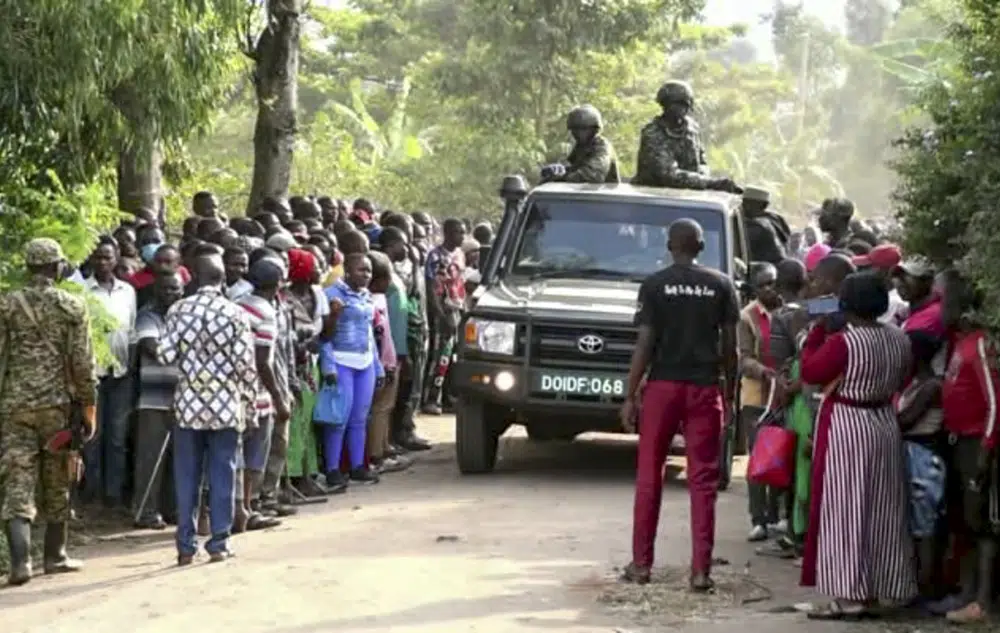The beleaguered community in the Ugandan border town of Mpondwe-Lhubiriha has begun the heart-wrenching process of laying to rest those tragically slain in a sinister attack on the Lhubiriha Secondary School, perpetrated on Friday night.
The gruesome assault has left 38 students, a school guard, and three civilians dead, with the toll having risen to 41 after one of the eight injured succumbed to their injuries, according to the town’s Mayor, Selevest Mapoze.
Eyewitness accounts describe a chillingly methodical rampage by militants brandishing firearms and machetes. A dormitory was set ablaze, reducing some students to remains unrecognisable, whilst others were brutally shot or hacked to death.
It is believed by Ugandan authorities that at least six students have been abducted, with fears that they have been taken across the border into the Democratic Republic of Congo (DR Congo), a mere mile away from the school.
A pall of grief enveloped the community as relatives collected the bodies of their loved ones from the morgue. Among those being mourned were Florence Masika and her son Zakayo Masereka, who were tragically killed as they sought refuge from the onslaught.
The attack is suspected to have been orchestrated by the Allied Democratic Forces (ADF), a group known to be active in DR Congo and which has purported ties with the Islamic State (IS).
Global condemnation of the atrocity has been swift. UN Secretary-General António Guterres denounced the attack, highlighting the “importance of collective efforts, including through enhanced regional partnerships, to tackle cross-border insecurity between DR Congo and Uganda and restore durable peace in the area”.
In a statement, Ugandan President Yoweri Museveni condemned the attack as “criminal, desperate, terrorist and futile”, pledging to bolster military presence along the Ugandan border.
However, questions loom large over how the militants were able to execute such a large-scale attack without being detected, particularly in a region known for its significant military presence.
Major General Dick Olum revealed to AFP that there had been intelligence regarding ADF activity in the area at least two days prior to the attack. An investigation is expected to scrutinise the apparent lapse in security.
The ADF, established in the early 1990s by Ugandan Muslims claiming marginalisation under President Museveni’s policies, has been implicated in a series of attacks in the eastern DR Congo in recent years. This latest attack is the most devastating of its kind in Uganda since 2010.
Residents of Mpondwe-Lhubiriha reported a tense yet calm atmosphere on Sunday, as Ugandan security forces patrolled the streets surrounding the school, which remained cordoned off by police.
As the mourning community grieves for the lost lives, the international community watches closely to see what steps will be taken to bring the perpetrators to justice and ensure the safety and security of innocent civilians in the region.
Image Credit: AP Photo




